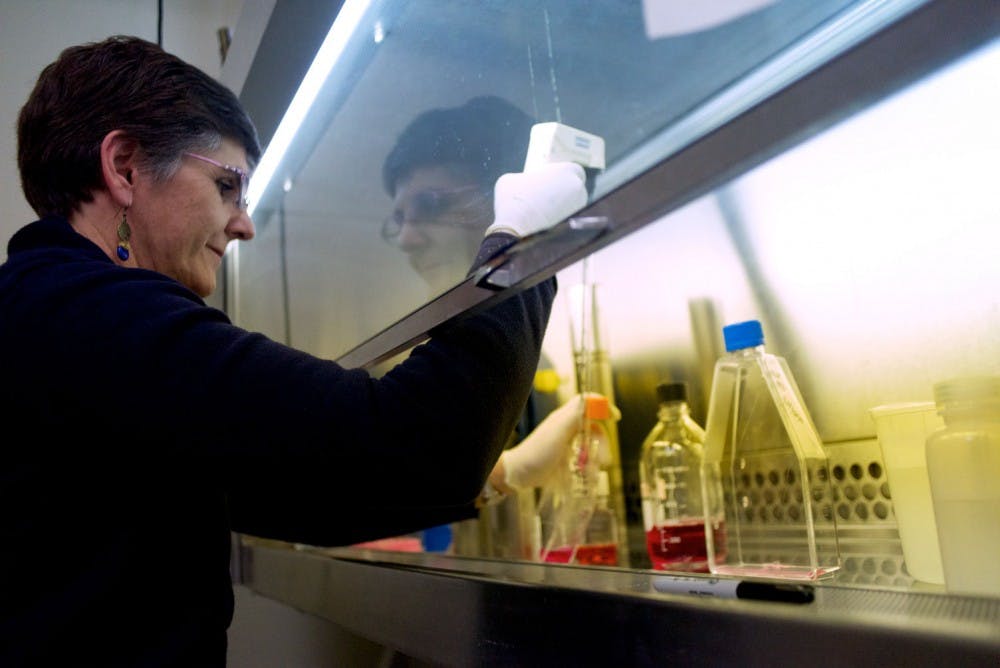An HCOM professor will study a protein that could potentially be used to create a vaccine for the virus
Bonita Biegalke began researching a virus that causes disabilities in infants before scientists even knew its DNA sequence.
More than 20 years later, Biegalke, an associate professor of virology in OU’s Heritage College of Osteopathic Medicine, was awarded a $445,500 grant to continue studying human cytomegalovirus (HCMV).
Her work could eventually lead to a cure.
Between 50 and 80 percent of the United States population will be affected by the virus, but those with immune deficiencies are generally the only ones who show symptoms, according to the Centers for Disease Control.
“Although there have been years of research on the virus, there are still many questions about it that we don’t understand,” Biegalke said.
Biegalke will study how the virus affects three groups of people with weakened immune systems, including:
-
Newborn infants whose mothers have the virus
-
Organ and bone marrow transplant recipients
-
People who are infected with HIV
“Right now there’s not much that we can do to prevent the virus from passing from the mother to the child,” said Mark Slayton, a molecular and cellular biology graduate student working with the research team. “Also, the virus can use organ transplants as an opportunity to come out and cause all sorts of complications.”
Biegalke and her team of a post-doctoral fellow, Slayton, a laboratory technician and three undergraduate students will use the grant money to research a protein that allows the virus to grow.
“Ultimately, we hope to be able to better understand what this protein is doing so we can interfere with its function," Biegalke said.
If Biegalke and her team are successful, they could develop a cure for the virus.
“Dr. Biegalke’s research could lead to the development of a vaccine with the potential to reduce the number of babies born with developmental disabilities,” Kenneth Johnson, dean of HCOM, said in an email.
The research could lead to ultimately preventing the birth defects, Slayton said.
“One of the reasons I was excited about this project was the human impact and the fact that we’re trying to make a difference in people’s lives,” Slayton said.
Biegalke has studied the virus for more than 20 years and was previously a postdoctoral fellow at the Fred Hutchinson Cancer Research Center in Seattle and received a NIH grant to study a similar protein in the 1990s.
"Science and technology have advanced so significantly in that time frame," Biegalke said.
Biegalke said it was an honor to receive an NIH grant to continue studying HCMV after so many years.
“It’s a vote of confidence in our research,” Biegalke said. “It basically means that a national institution thinks what we’re doing is valuable and worthwhile.”
OU-HCOM received seven NIH grants in 2014, Lisa Forster, a HCOM spokeswoman, said.
“The ultimate goal of medical research is to improve health and well-being,” Johnson said. “It usually takes scientists like Dr. Biegalke years of patient dedication, effort and problem solving to find an effective treatment for health issues, but the outcome is worth it.”
@kcoward02
kc769413@ohio.edu






